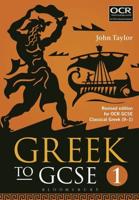Publisher's Synopsis
Over the last 40 years, the study of word-order variation has become a prominent and fruitful field of research. Researchers of linguistic typology have found that every language permits a variety of word-order constructions, with subject, verb, and objects occupying varying positions relative to each other. It is frequently possible to classify one of the word orders as the basic or unmarked order and the others as marked.
Moshavi's study investigates word order in the finite nonsubordinate clause in classical Biblical Hebrew. A common marked construction in this type of clause is the preposing construction, in which a subject, object, or adverbial is placed before the verb. In this work, Moshavi formally distinguishes preposing from other marked and unmarked constructions and explores the distribution of these constructions in Biblical Hebrew. She carries out a contextual analysis of a sample (the book of Genesis) of preposed clauses in order to determine the pragmatic functions that preposing may express. Moshavi's thesis is that the majority of preposed clauses can be classified as one of two syntactic-pragmatic constructions: focusing or topicalization.
This meticulous yet approachable study will be useful both to students of Biblical Hebrew and to persons doing general study of syntax, especially those interested in the connection between linguistic form and pragmatic meaning.












